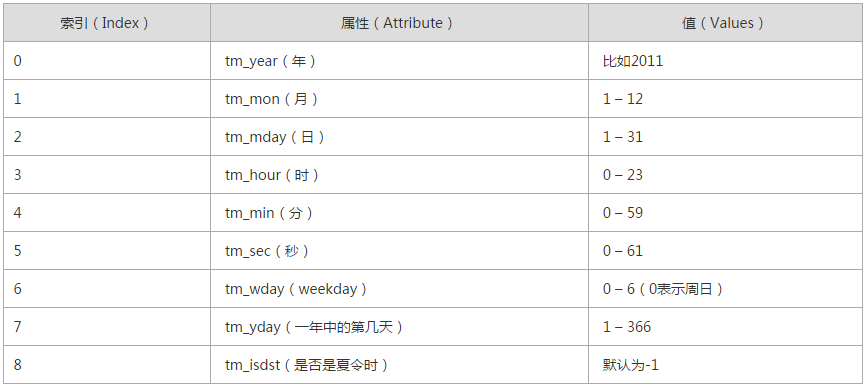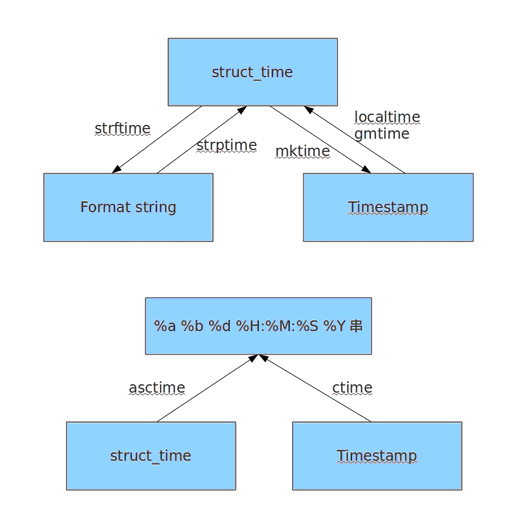08day03
一、eclipse的使用
- 可能是全宇宙最好用的IDE
- debug
- 查看执行过程
- 查看源码
二、模块的常用方法
- __name__
- __file__
- __doc__
三、函数
- 参数
- 参数默认值
- 可变参数
- 返回值

''' def Foo(): print 'Foo' def Foo(arg) print arg def Foo(arg='alex'): print arg #必须放在最后 def Foo(arg1,arg2): print arg1,arg2 Foo(arg2='alex',arg1='kelly') def Foo(arg,*args): print arg,args Foo('alex','kelly','tom') def Foo(**kargs): print kargs.keys() print kargs.values() Foo(k1='sb',k2='alex') '''
四、yield

def AlexReadlines(): seek = 0 while True: with open('D:/temp.txt','r') as f: f.seek(seek) data = f.readline() if data: seek = f.tell() yield data else: return for i in AlexReadlines(): print i
五、三元运算和lambda表达式
result = 'gt' if 1>3 else 'lt' print result
a = lambda x,y:x+y
print a(4,10)
六、内置函数
#print help()
print dir()
print vars()
#print type()
import temp
import temp
reload(temp)
id([12])
#is
------------------
cmp(2,3)
cmp(2,2)
cmp(2,1)
cmp(10,1)
abs()
bool()
divmod()
max()
min()
sum()
pow(2, 11)
------------------
len()
all()
any()
------------------
chr()
ord()
hex()
oct()
bin()
------------------
print range(10)
print xrange(10)
for i in xrange(10):
print i
for k,v in enumerate([1,2,3,4]):
print k,v
------------------
s= 'i am {0}'
print s.format('alex')
str(1)
------------------
def Function(arg):
print arg
print apply(Function,('aaaa')) #执行函数
print map(lambda x:x+1,[1,2,3]) #all
print filter(lambda x: x==1,[1,23,4]) #True序列
print reduce(lambda x,y:x+y,[1,2,3]) #累加
x = [1, 2, 3]
y = [4, 5, 6]
z = [4, 5, 6]
print zip(x, y,z)
------------------
#__import__()
#hasattr()
#delattr()
#getattr()
module = __import__('temp')
print dir(module)
val = hasattr(module, 'version')
print val
------------------
#callable()
#函数、类必须要有 __call__ 方法
#compile
#eval
com = compile('1+1','','eval')
print eval(com)
#exec语句
code = "for i in range(0, 10): print i"
cmpcode = compile(code, '', 'exec')
exec cmpcode
code = "print 1"
cmpcode = compile(code, '', 'single')
exec cmpcode
------------------
#isinstance()
#issubclass()
#super()
#staticmethod()
更多,猛击这里
七、常用模块
1、random 用于生成随机数
import random print random.random() print random.randint(1,2) print random.randrange(1,10)
应用场景:生成随机验证码
import random
checkcode = ''
for i in range(4):
current = random.randrange(0,4)
if current != i:
temp = chr(random.randint(65,90))
else:
temp = random.randint(0,9)
checkcode += str(temp)
print checkcode
2、md5 加密
import md5
hash = md5.new()
hash.update('admin')
print hash.hexdigest()
import hashlib
hash = hashlib.md5()
hash.update('admin')
print hash.hexdigest()
3、序列化和json

4、re
- compile
- match search findall
- group groups
正则表达式常用格式:
字符:\d \w \t .
次数:* + ? {m} {m,n}
5、time
import time
#1、时间戳 1970年1月1日之后的秒
#3、元组 包含了:年、日、星期等... time.struct_time
#4、格式化的字符串 2014-11-11 11:11
print time.time()
print time.mktime(time.localtime())
print time.gmtime() #可加时间戳参数
print time.localtime() #可加时间戳参数
print time.strptime('2014-11-11', '%Y-%m-%d')
print time.strftime('%Y-%m-%d') #默认当前时间
print time.strftime('%Y-%m-%d',time.localtime()) #默认当前时间
print time.asctime()
print time.asctime(time.localtime())
print time.ctime(time.time())
import datetime
'''
datetime.date:表示日期的类。常用的属性有year, month, day
datetime.time:表示时间的类。常用的属性有hour, minute, second, microsecond
datetime.datetime:表示日期时间
datetime.timedelta:表示时间间隔,即两个时间点之间的长度
timedelta([days[, seconds[, microseconds[, milliseconds[, minutes[, hours[, weeks]]]]]]])
strftime("%Y-%m-%d")
'''
import datetime
print datetime.datetime.now()
print datetime.datetime.now() - datetime.timedelta(days=5)


6、sys
sys.argv 命令行参数List,第一个元素是程序本身路径
sys.exit(n) 退出程序,正常退出时exit(0)
sys.version 获取Python解释程序的版本信息
sys.maxint 最大的Int值
sys.maxunicode 最大的Unicode值
sys.path 返回模块的搜索路径,初始化时使用PYTHONPATH环境变量的值
sys.platform 返回操作系统平台名称
sys.stdout.write('please:')
val = sys.stdin.readline()[:-1]
print val
7、os
os.getcwd() 获取当前工作目录,即当前python脚本工作的目录路径
os.chdir("dirname") 改变当前脚本工作目录;相当于shell下cd
os.curdir 返回当前目录: ('.')
os.pardir 获取当前目录的父目录字符串名:('..')
os.makedirs('dirname1/dirname2') 可生成多层递归目录
os.removedirs('dirname1') 若目录为空,则删除,并递归到上一级目录,如若也为空,则删除,依此类推
os.mkdir('dirname') 生成单级目录;相当于shell中mkdir dirname
os.rmdir('dirname') 删除单级空目录,若目录不为空则无法删除,报错;相当于shell中rmdir dirname
os.listdir('dirname') 列出指定目录下的所有文件和子目录,包括隐藏文件,并以列表方式打印
os.remove() 删除一个文件
os.rename("oldname","newname") 重命名文件/目录
os.stat('path/filename') 获取文件/目录信息
os.sep 输出操作系统特定的路径分隔符,win下为"\\",Linux下为"/"
os.linesep 输出当前平台使用的行终止符,win下为"\t\n",Linux下为"\n"
os.pathsep 输出用于分割文件路径的字符串
os.name 输出字符串指示当前使用平台。win->'nt'; Linux->'posix'
os.system("bash command") 运行shell命令,直接显示
os.environ 获取系统环境变量
os.path.abspath(path) 返回path规范化的绝对路径
os.path.split(path) 将path分割成目录和文件名二元组返回
os.path.dirname(path) 返回path的目录。其实就是os.path.split(path)的第一个元素
os.path.basename(path) 返回path最后的文件名。如何path以/或\结尾,那么就会返回空值。即os.path.split(path)的第二个元素
os.path.exists(path) 如果path存在,返回True;如果path不存在,返回False
os.path.isabs(path) 如果path是绝对路径,返回True
os.path.isfile(path) 如果path是一个存在的文件,返回True。否则返回False
os.path.isdir(path) 如果path是一个存在的目录,则返回True。否则返回False
os.path.join(path1[, path2[, ...]]) 将多个路径组合后返回,第一个绝对路径之前的参数将被忽略
os.path.getatime(path) 返回path所指向的文件或者目录的最后存取时间
os.path.getmtime(path) 返回path所指向的文件或者目录的最后修改时间
8、装饰器
'''
def foo():
print 'foo'
def foo():
print 'before do something'
print 'foo'
print 'after'
def foo():
print 'foo'
def wrapper(func):
print 'before'
func()
print 'after'
wrapper(foo)
def foo():
print 'foo'
def wrapper(func):
def result():
print 'before'
func()
print 'after'
return result
Do = wrapper(foo)
Do()
'''
def wrapper(func):
def result():
print 'before'
func()
print 'after'
return result
@wrapper
def foo():
print 'foo'
foo()
#!/usr/bin/env python
#coding:utf-8
def Before(request,kargs):
print 'before'
def After(request,kargs):
print 'after'
def Filter(before_func,after_func):
def outer(main_func):
def wrapper(request,kargs):
before_result = before_func(request,kargs)
if(before_result != None):
return before_result;
main_result = main_func(request,kargs)
if(main_result != None):
return main_result;
after_result = after_func(request,kargs)
if(after_result != None):
return after_result;
return wrapper
return outer
@Filter(Before, After)
def Index(request,kargs):
print 'index'
if __name__ == '__main__':
Index(1,2)




